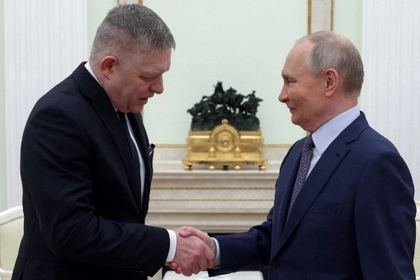On the 30th Anniversary of the Signing of the Budapest Memorandum, President Volodymyr Zelensky Says That it Never Benefitted Ukraine for a Single Day.
In his nightly address, Zelensky said:
“Today marks thirty years of the Budapest Memorandum. Ten years of war. Not a single day did this document work. And because of this, everyone in the world will now know that a mere signature – by any state – or any assurances or promises are not enough for security.
JOIN US ON TELEGRAM
Follow our coverage of the war on the @Kyivpost_official.
“What’s needed are effective guarantees – real alliances and a realistic security foundation within the country. Weapons that enable defense and deterrence of the enemy. And unity that helps endure even the most challenging moments. We are working on every element of security. Thank you to everyone who is helping, and to all our people making it possible!”
The Budapest Memorandum was signed on Dec. 5, 1994, in what is now Viktor Orban’s capital city. The signatories to the security agreement included the United States, the United Kingdom, and the Russian Federation, which all promised to safeguard Ukraine’s sovereignty in exchange for surrendering nuclear weapons under Kyiv’s physical control to Moscow.
The impetus for this was to get Ukraine to join and adhere to the Treaty on the Non-Proliferation of Nuclear Weapons.
Chief Russian Diplomat Threatens Ukraine and the West With “Any Means” to Avoid “Strategic Defeat of Russia”
On Thursday, Dec. 5, 2024, the 30th anniversary of the signing of the Budapest Memorandum, Russian Foreign Minister Sergei Lavrov, Moscow’s chief diplomat, said he hoped Ukraine’s allies took “seriously” the Kremlin’s recent use of its Oreshnik hypersonic missile, warning that Russia was ready to use “any means” to defend itself, according to Ukrinform.

NATO Chief Calls Zelensky’s Criticism of Scholz Unfair
In an interview with pro-Russian US media commentator Tucker Carlson on Thursday, Lavrov said the US and the West “must understand that we would be ready to use any means not to allow them to succeed in what they call strategic defeat of Russia.”
“We are sending signals and we hope that the last one, a couple of weeks ago, the signal with the new weapons system called Oreshnik... was taken seriously,” Lavrov said.
Ukrainian Drone Operations Continue to Play a Critical Role in Constraining Russian Forces on the Front Lines
Success on the front lines is directly linked to the Ukrainian force's use of drones, driven by innovations of volunteers and enterprising citizens in the civilian and military sectors. This is evidenced by the liberation of one village Thursday and the ongoing defense of the strategic rail hub city of Pokrovsk.
“Ukrainian drone operations continue to play a critical role in constraining Russian mechanized maneuver and preventing Russian forces from fully exploiting Ukraine's ongoing manpower constraints,” said analysts at the Institute for the Study of War (ISW)
Kyiv Post on Thursday reported that “Ukrainian troops have regained control of Novy Komar, a village in the Volnovakha district of the Donetsk region,” Nazar Voloshyn, spokesperson for the Khortytsia operational-strategic group, told our correspondents.
“The Russian occupiers suffered heavy losses, with many fleeing to the highway. Enemy marines from the 40th Separate Brigade of the Russian Marine Corps were captured,” the battalion wrote on itsFacebook page.
DeepState outlined the effective actions of the 48th Battalion’s assault infantry in liberating the village. Analysts noted that the operation also involved several FPV drone crews. These teams, typically consisting of a commander, a drone operator, and a navigator, played a critical role in the success.
The ISW Friday noted that: “Ukrainian drone operations continue to be the backbone of Ukraine’s war effort, particularly in western Donetsk Oblast where successful Ukrainian drone operations contributed to forcing the Russian military command to reorient its primary operational effort for 2024.”
ISW cited the long-term example of the role of drones in defending the strategically important city of Pokrovsk:
“Russian forces have not taken Pokrovsk after eight months of grinding but consistent advances in western Donetsk Oblast. Ukrainian defensive operations, based on the integration of successful Ukrainian drone innovators and operators with ground forces combined with constraints on Russia’s strategic and operational-level manpower and materiel reserves have forced the Russian military command to abandon its original campaign design of a frontal assault on Pokrovsk.”
ISW added that “Russian advances have come at very high costs in troops and armored vehicles and months of time.”
You can also highlight the text and press Ctrl + Enter






